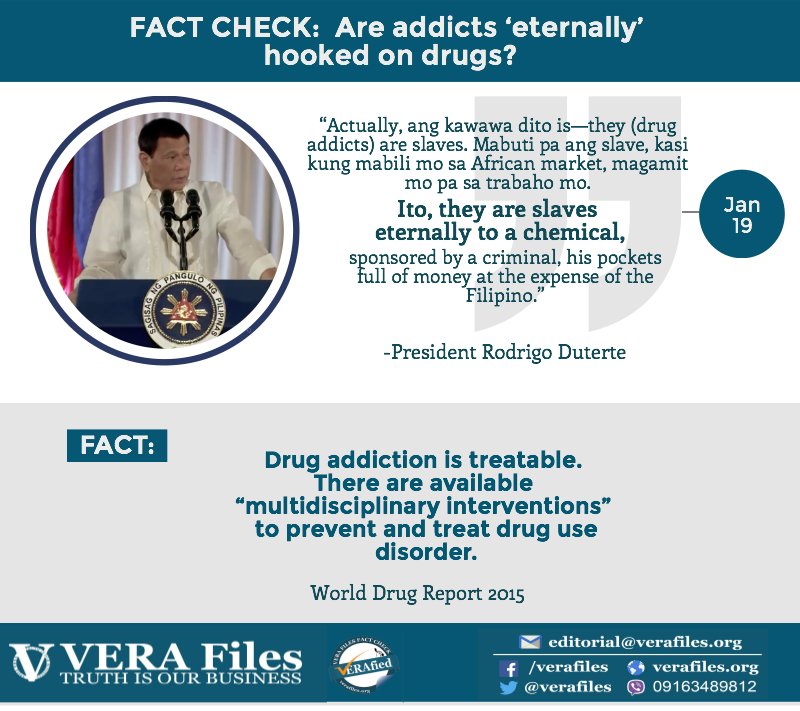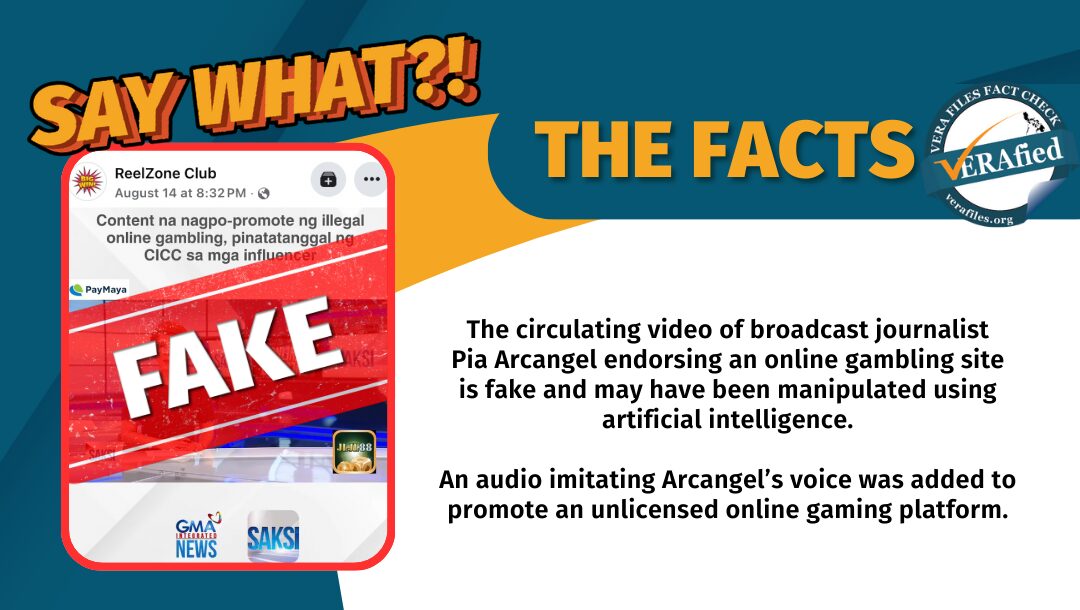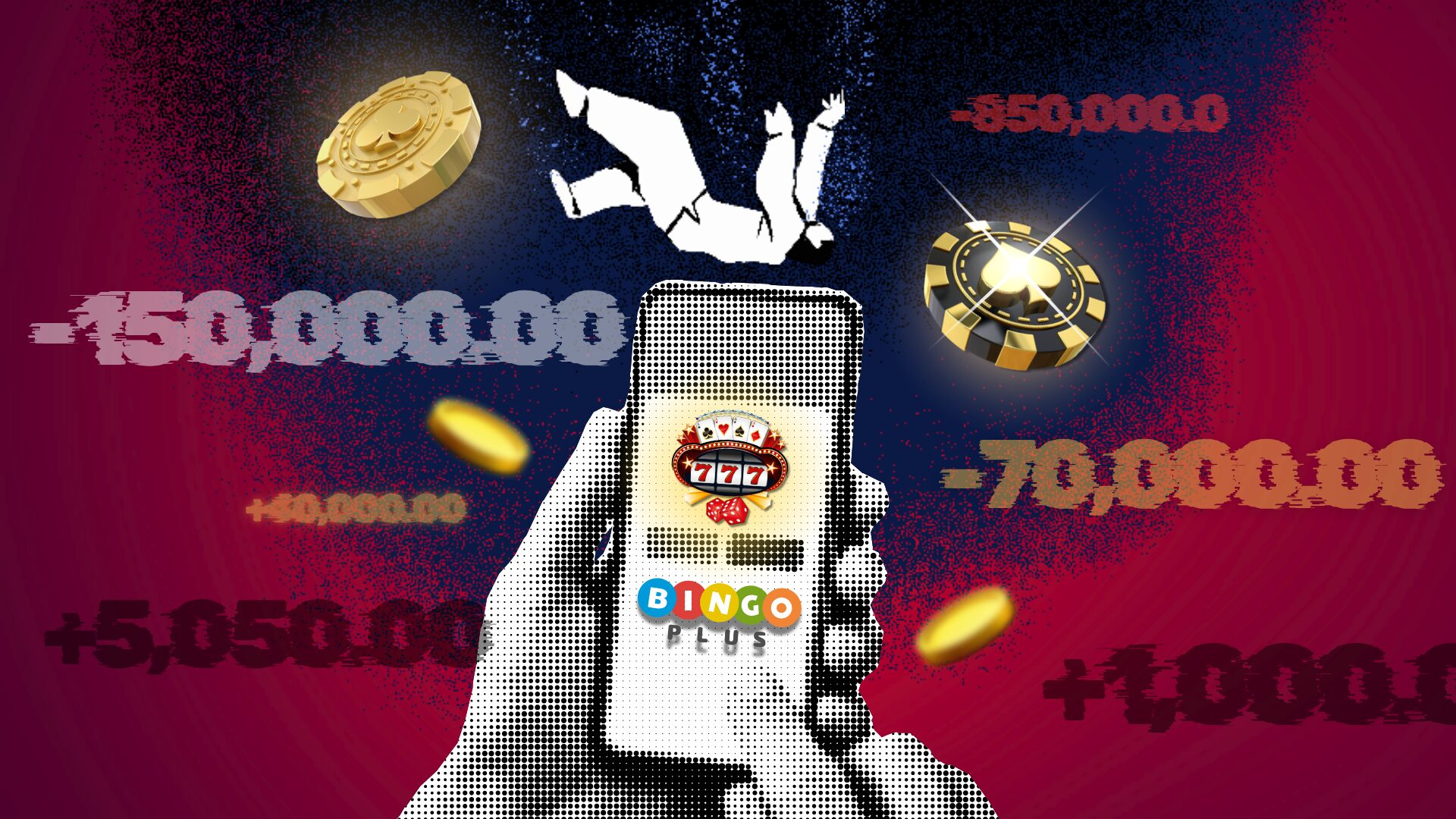
The last time Alma (not her real name) shared Noche Buena with her children in the Philippines was a decade ago. An overseas Filipino worker (OFW) in Kuwait, she has been accustomed to flashing lights – not from beaming Christmas parols – but from an online gambling application on her mobile phone.
The colorful app advertising cashback and thrills screamed on her phone’s screen to lure Alma into placing yet another bet. It was too late when the realization hit that she had already lost millions of pesos to virtual slot machines, which had been her balm for homesickness.
Alma, who has not touched any online gambling app in the last six months, has since made it her goal to return home for Christmas this year to reunite with her two children.
So she found and joined Gambling Addiction Recovery Philippines in 2024, a Facebook group led by “victims and survivors” of compulsive gambling who educate active bettors on how to quit.
“Yung mga gambling page, sumasali po ako diyan kasi ‘yan lang po talaga ang paraan para sa isang taong nalulong, yung i-share mo sa ibang tao kung anong pinagdadaanan mo.
(Those gambling pages, I join them because it’s the only way for gamblers with addiction, to share what they’re going through),” she told VERA Files in an online interview.
The online community was founded in August 2023 by individuals who had fully recovered from gambling addiction. It had been considered a safe space by 28,100 members who struggled with addiction.
Despite not having experts in the group, leaders conduct online meetings daily for active gamblers and are sought out by those seeking support. In the meeting links shared through its Facebook chat group, the link reads, “If you think you have a gambling problem you are welcome.”
Big money industry
Philippine Amusement and Gaming Corporation (PAGCOR) Chairperson Alejandro Tengco reported during a February 2025 press conference that online gambling had become a P410-billion business and its gross gaming revenue (GGR) is expected to jump to P480 billion in 2025.
GGR is the total bets placed minus the winnings paid to gamblers. However, bigger online gambling revenues equate to a greater population of Filipinos trapped in debt and addiction.
In a House Committee on Appropriations budget briefing on Aug. 20, Tengco also revealed that of its P111.71 billion total income in 2024, more than P49 billion came from online gambling. There are 70 licensed online gambling operators recorded in the country.
Alma criticized the government for prioritizing profit from betting apps and its lack of national policies to regulate the silent “pandemic” of gambling addiction and the accompanying mental health woes.
“Kasi kumikita sila [government] sa tax niyan. Pero hindi nila alam, marami na sa sambayanan ang nasisira ang buhay dahil diyan. Kumikita ang gobyerno pero ang taumbayan, hindi na alam kung anong buhay at kinabukasan ang meron sa kabataan.
(The government profits from its taxes. But what they’re not aware of, many Filipinos’ lives are destroyed because of it. The government profits, but the people, they’re unsure of the children’s lives and future),” she rued.
Despite earning P30,000 monthly, Alma said one of her wake-up calls about her addiction was when she “sold her body” to sustain her gambling dependency, because she felt restless for lack of funds to play the game Scatter.
Loans: Another pitfall
“Pati katawan ko nagawa ko nang ibenta dahil lang dito [online gambling]. Imaginin nyo ‘yun, hindi ko naman dapat nagawa ‘yun kasi may trabaho ako (I even sold my body because of online gambling. I shouldn’t have done that because I have a job),” Alma said.
And worse, her husband, and initially, her two children, “disowned” her after they were harassed by lenders Alma owed money to. This encouraged the long-time OFW to entrust her growing depression to online strangers for free mental health support.
“May anxiety na po ako. May depression ako. Pero napakahirap po sa isang tulad [ko] na malayo sa pamilya, na magpalamon sa [depression], kumbaga problema ko na ‘yun sa sarili ko. Kasi may tendency na mamatay ako, o magpakamatay ako pag hindi ko na kinaya.
(I developed anxiety. I have depression. But it’s challenging for me, who’s far away from her family to be consumed by depression. It’s a problem I have to handle myself, because I might get suicidal tendencies if I can’t handle it anymore)”, Alma shared.
She has since repaired her relationship with her children, another reason why Alma is looking forward to coming home this Christmas.
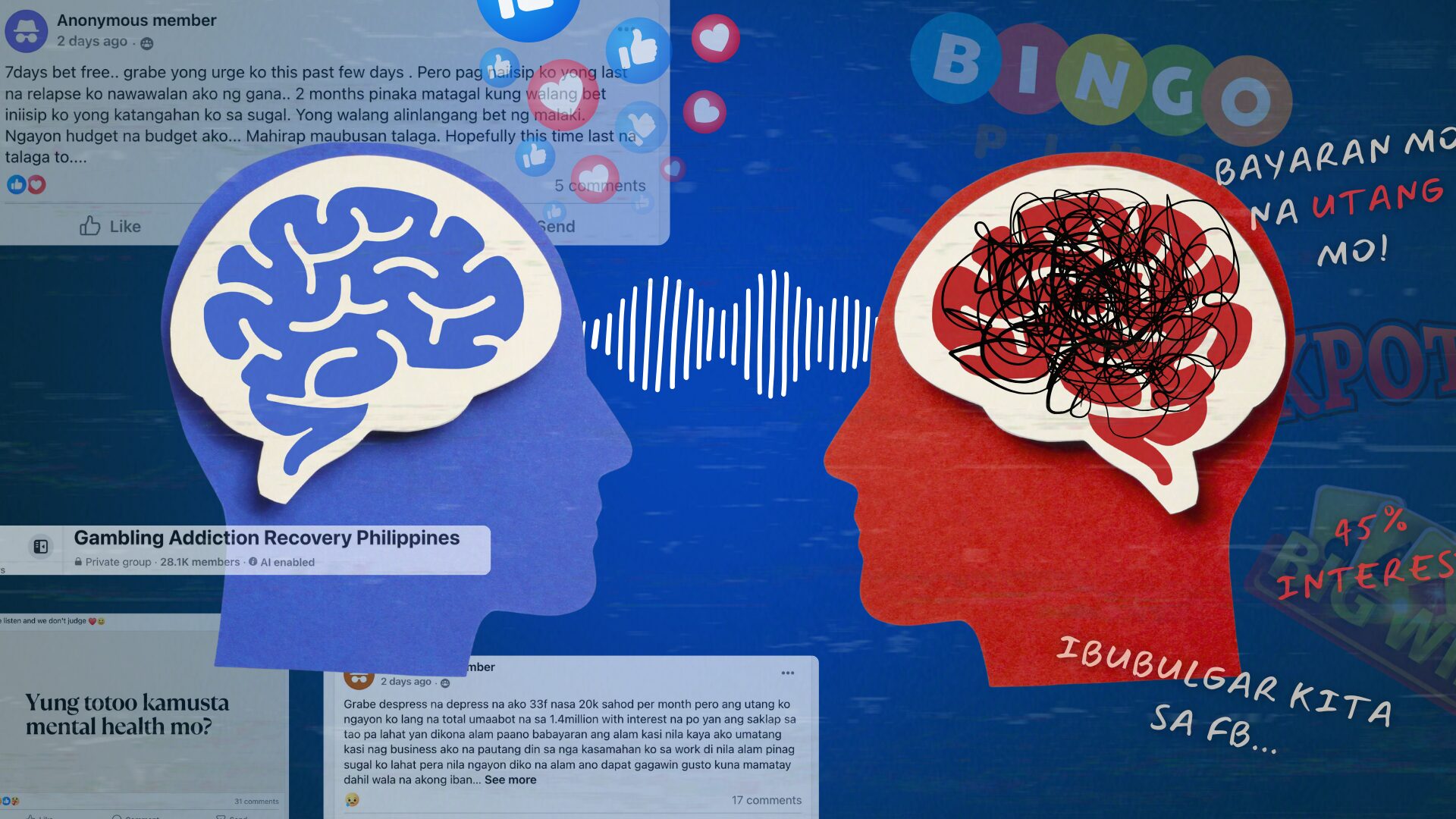
Recovering online gambler Chel Uson (not his real name) shared that like Alma, he had already lost millions of pesos after playing Tongits Go and Bingo Plus for three years, which led to blackmails and threats from loan apps.
“Araw-araw may maniningil at may pananakot. Yung sa pananakot, madalas ko ‘to nararanasan, may mga tumatawag at tinatakot ako na ibubulgar daw ako. (There are daily threats from lenders. I receive calls, threatening me that they’ll expose me),” he said.
He said his gambling addiction also pushed him to be secretive and neglectful of his family, which encouraged him to join online recovery groups for accessible rehabilitation interventions.
“Nakatulong yung mga FB groups for recovery, kasi maraming nakakaintindi sa akin. Tapos lagi silang may reminder sa ‘yo na wag ka na ulit susubok sa pagsusugal.
(FB recovery groups helped, because many people understood me. They always remind you not to try gambling again), ” he said.
Form of escapism
According to sociologist Prince Kennex Aldama from the University of the Philippines Los Baños, the rising number of online gamblers reflect the country’s poor economic state.
“Sa Pilipinas kahit yung may mga trabaho, hirap pa rin sila (In the Philippines, those with jobs still experience financial struggles) because their wages do not match yung rising cost of living. And for someone earning enough, just enough, ‘yung gambling looks like an opportunity,” he told VERA Files.
Meanwhile, for people surviving below minimum wage, online gambling becomes a form of escapism from financial challenges with a goal of turning small change tenfold.
Online platforms are also structured to be addictive due to their convenience and low barrier to entry. Aldama said enabling gamblers to bet P20 to P50 is a “manipulative feature” intentionally imposed by gaming operators.
“In this case, people use gambling as a way to temporarily forget struggles. But the problem is, habang tumatakas sila, lumalaki rin yung utang and yung emotional toll (as they try escaping, their debt and emotional toll also intensifies),” Aldama said.
“Because it doesn’t just drain the finances. It also delays problem-solving,” he pointed out.
Never-ending cycle
This was Alma’s routine abroad: entrenched in a pattern of borrowing money, then paying them back using her monthly salary.
“Ang nangyayari kasi pag mauubos na yung pera, mangungutang na naman sa iba. Eh hindi… ang sahod, ibabayad ko na naman. Mangungutang hanggang yun na yung cycle po ng buhay ko.
(What happens is when I lose money, I seek loans. Then I’ll use my salary to pay the debts. Taking out loans, that becomes the cycle of my life),” she said.
Presidential Anti-Organized Crime Commission (PAOCC) Spokesperson Winston Casio said online lending apps have been enticing gamblers to easy money with high interest rates.
“Kung wala kang mautangan, sa online lending app ka lalapit dahil sa kawalan mo ng pag-asa na makakuha ng loan sa bangko (If you have no one to borrow from, you’ll settle with an online lending app because it’s hopeless for banks to lend money)” Casio said, explaining that bank loans carry strict conditions, in contrast to lending applications that often only require identity verification for registration.
Casio said monthly interest rates for debts are usually fixed at 45%. He said the last resort for settling the ballooning interest charges is when civil cases are filed by “unfair” lending firms against debtors who fail to settle their obligations.
“Kaya kung wala na silang kapasidad mag-bayad ng utang (if they no longer have the capacity to pay their loan), they have to talk to the lending application, the lending agency. Gusto nung kumpanya, kasuhan na lang sila, civil lang naman yun, hindi criminal. (The company will usually file a case, just a civil case, not criminal). So they’ll have to go through a small claims court,” Casio explained to VERA Files.
Protecting the gambler or profits?
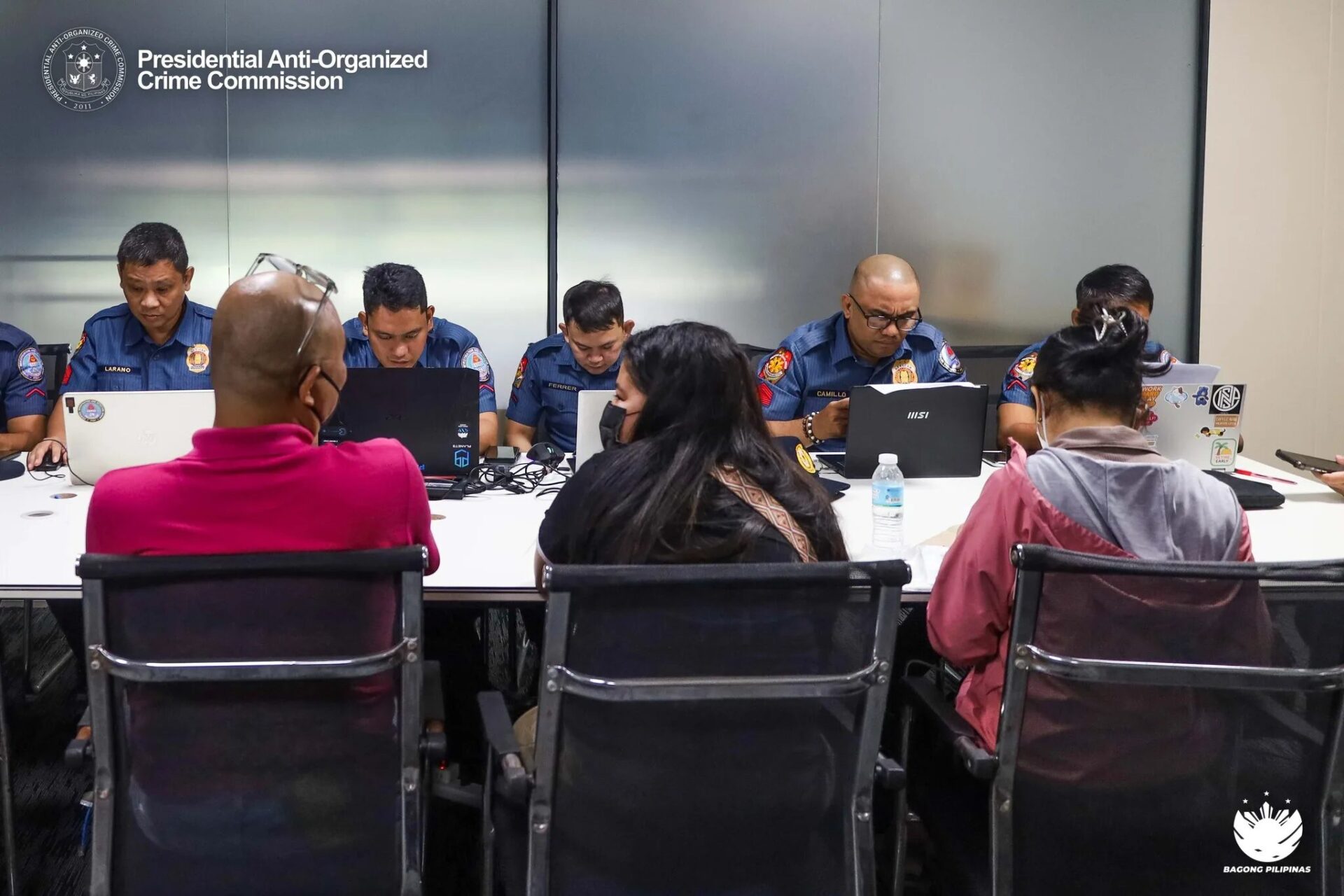
Casio echoed the need for stricter regulations from more “objective” third-party organizations and institute intervention measures.
“Dapat ihiwalay ng PAGCOR yung function nila (PAGCOR should separate their function) of generating revenue via way to regulate the government. The regulator cannot police itself. There has to be someone, some organization, government entity, who is more objective outside of the issue,” he said.
In July, Akbayan partylist Reps. Chel Diokno, Perci Cendaña, and Dadah Ismulla filed House Bill 1351 or the Kontra e-Sugal Act.
The proposed measure aims to establish strict age verification systems, limit online gambling promotions, and acknowledge gambling disorder as a public health condition.
“Presently, there is no law specifically regulating online gambling platforms in the country. The State, in the exercise of its inherent police power, must act decisively to protect the physical, mental, and social well-being of its citizens from the growing harms associated with online gambling. Hence, this proposed legislation,” the bill’s explanatory note said.
Sen. Joel Villanueva also authored Senate Bill 47 or the Anti-Online Gambling Act that seeks the total ban of electronic betting.
However, Casio said this would only drag the infrastructure further underground, and could lead to a surge in illegal gambling sites.
Despite the Bangko Sentral ng Pilipinas’ move to unlink online casino apps from electronic wallets like GCash last August, corrective policies still remain in limbo.
A public health issue
Alma knows and has accepted that she is far from being a recovered compulsive gambler. Her biggest fear is having to face temptation again from betting games once she earns a large sum of money.
“Andito na kasi sa sistema ko yung pagiging sugarol (Being a gambler is already in my system),” she lamented.
For Aldama, the government must prioritize developing support systems, accessible hotlines for suicidal bettors and community-based intervention programs as pioneered by Facebook gambling recovery groups.
The PAOCC spokesperson also shared about attending a wake in Valenzuela last July. The deceased, a gambling addict, took his own life because he was buried in debt.
“Dahil lulong na lulong na siya doon sa pagkakautang sa online lending app. So dahil wala na siyang pag-asa na mabayaran, ang response niya ay mag-commit ng suicide (Because he was drowning in debt from an online lending app. Since he lost hope of repaying it, his response was to commit suicide),” Casio said.
He admitted the government has no mental health interventions targeted for online gamblers, while PAOCC is still coordinating with the National Center for Mental Health on how to offer treatment for gambling disorders.
To avoid history from repeating itself with the social costs levied by Philippine Offshore Gaming Operators, Aldama believes that online gambling should be recast as a public health and social issue.
“We need to see online gambling as a public health issue and a social issue. Kasi kung pera lang ang (because if money is the only) priority, the social costs will be much higher in the long run,” he added.
Alma and Uson also warned of the perils they experienced as recovering players.
“Ang tip ko sa mga nagsusugal pa, hindi ka yayaman diyan sa sugal. Piliin mo ang pamilya mo, ang mental health mo, at ang kinabukasan mo dahil maraming nagpapakamatay dahil sa pagkabaon sa utang at sugal,” Uson said.
(“My advice to those who are still gambling, you won’t get rich from it. Choose your family, your mental health, and your future, because many people already took their lives due to immense debt and gambling).”
“Sa mga nalululong naman na nawawalan ng pag-asa: may pag-asa pa. Lahat ng utang nababayaran (To those still addicted to gambling who are feeling hopeless, don’t despair. Debts can eventually be paid),” said Alma.
Will the government step up to help save these online gambling addicts who are silently crying out for help?
Editor’s note: This article was produced by a Journalism student of the University of Santo Tomas as part of her internship at VERA Files.
